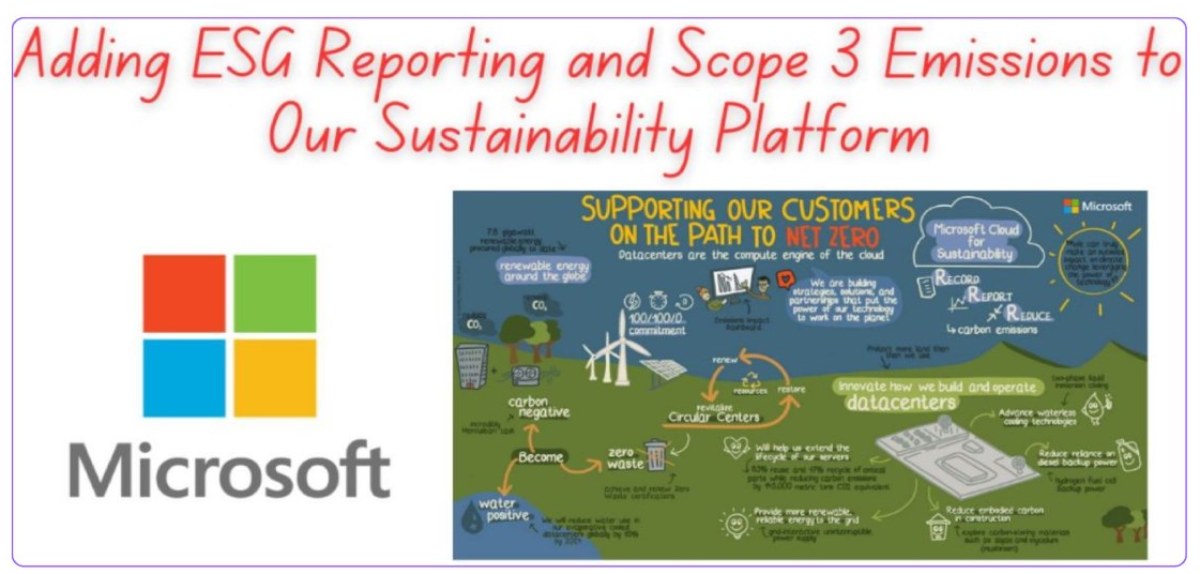Microsoft Adds ESG Reporting, Scope 3 Emissions To Sustainability Platform
Microsoft has added new features to its sustainability platform-Microsoft Cloud for Sustainability that includes the capability of helping companies meet emerging ESG reporting requirements and regulations, calculating Scope 3 emissions, and collecting and managing ESG data across categories and data sources
Microsoft has added new features to its sustainability platform-Microsoft Cloud for Sustainability that includes the capability of helping companies meet emerging ESG reporting requirements and regulations, calculating Scope 3 emissions, and collecting and managing ESG data across categories and data sources.
Additional features:
The additional features include an expansion of Microsoft Cloud for Sustainability’s emissions calculation capabilities to include all 15 categories of Scope 3, or value chain, emissions.
How do these features support global mandates?
Microsoft is adding capabilities to track progress against Science Based Targets initiative (SBTi) designations. A new CSRD template to help organizations collect data needed for the European Sustainability Reporting Standards (ESRS) underlying the EU’s Corporate Sustainable Reporting Directive (CSRD) will begin applying in 2024. Microsoft will also introduce prebuilt reporting templates for other ESG regulations and standards as they are defined and implemented.
Spokesperson speak:
Satish Thomas, Corporate Vice President, Microsoft Industry Clouds, said, “Our initial release of the Microsoft Cloud for Sustainability data model focused on the pressing need to address carbon emissions. We have since expanded the data model to include water and waste. These data models centralize data to help streamline data ingestion, sharing, calculations, and reporting. This includes data from across the enterprise—enterprise resource planning (ERP), the Internet of Things (IoT) sensor, plant data, telemetry at the edge—and external sources including suppliers, utility companies, transportation, and more.”
(Courtesy: WriteCanvas)
WriteCanvas provides various ESG related content services. For details please refer http://www.writecanvas.in
EsgTimes News Network
Related posts
Subscribe
Error: Contact form not found.


